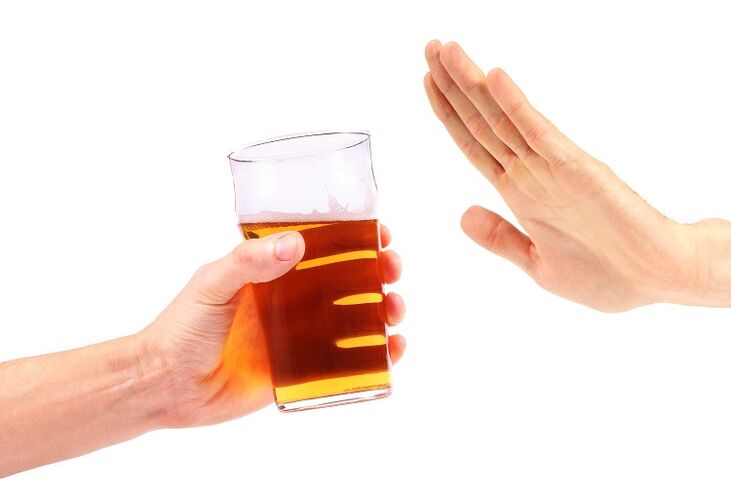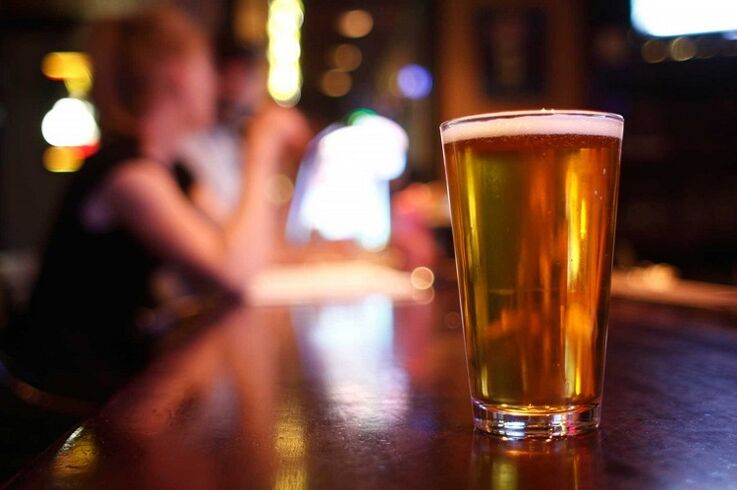After a tiring working day, you want to relax with a glass of wine or a can of beer. It seems, what will happen if you drink alcohol "for pleasure"?
The so-called "evening alcoholism" did not cause public outcry in society. At first glance, nothing bad happens: there is no immediate withdrawal syndrome from a glass of vodka. But the regular use of alcohol will affect the human body, regardless of the "quintessence" of the drinks. Young, successful people aged 25-40, buying expensive cognac, don't even realize the last link in the chain is standing in line with them - a gaunt, naked man inside. crumpled clothes. If you hint that this is your probable future, they will certainly be offended. However, if a person drinks alcohol every day, it won't be long before they pay the price not only in money, but in health, family relationships, and position in society.
The insidiousness of ethyl alcohol
Alcohol intake for pure alcohol should not exceed 5 ml/day (women) and 10 ml/day (men). It's best to break it down into several tricks. That is, 25 ml of strong drink, 100 ml of wine, 250 ml of beer 3-4% drunk at the festive table will not bring devastating harm to the female body (for men, the amount is doubled). However, the frequency of use with such "harmless" doses also makes them dangerous.
The destruction of the body begins gradually. It directly depends on age, health, weight, genetic predisposition. With the adverse coincidence of these factors, the first phase of alcoholism can occur in six months or a year. And a person who abuses alcohol will live the rest of his life in alcoholism.

Spiritual change
Since daily alcohol use is aimed at rapidly achieving psychotropic ("relaxing") effects, psychological dependence occurs first. After a week, a person gets used to reducing stress in this way, does not need a break to stay awake, and after a year, he forgets that it can be different.
The main symptoms of what is happening in the body:
- Insomnia. Despite the powerful hypnotic effects of ethanol, phases of healthy sleep are disrupted under its influence. Sleep becomes as deep as fascination - short, restless. Then a person has to drink alcohol to fall asleep.
- Worried and irritable. The constant presence of alcohol in the blood causes the brain to starve for oxygen. Along with sleep disturbances, this leads to fatigue, which leads to earlier drinking. This is how a "vicious circle" is formed.
- Lower the critical threshold. One begins to react harshly to the comments ("Yes, I drink constantly, but what's so terrible about it? "), constantly finding new reasons to drink.
- Look for reasons. Gradually, the lavish parties and drinking parties were replaced by rich drinks on TV every evening. Patients are willing to blame the whole world for an official reason to take another dose.
- Aggression is increasing. It is during the first and second stages of alcoholism that the majority of domestic crime occurs. Fantasy bravery makes you look for adventure, which often ends in a fight.
Physiological changes
The consequences of long-term alcohol consumption are irreversible disorders in the body.
- Changes in blood composition. Literally, a few hours later, glucose levels drop, thrombus formation increases, and blood circulation worsens.
- Avitaminosis. In the context of general drunkenness, vitamin deficiency seems to be a minor issue. However, over time, it will lead to hair loss, destruction of tooth tissue, indigestion, and reduced immunity. Perhaps the development of anemia, early dementia, acute clinical depression.
- Aging effect. The classic signs of an alcoholic are facial swelling, "star" blood vessels on the cheeks, pale or cyanotic skin. The person looks 10-15 years older than the age in the passport. Women's appearances change especially rapidly.
- Destroys nerve cells and tissues of internal organs. Absorbed through the esophagus, ethanol with bloodspread to every cell of the body, gradually affecting the liver, kidneys, stomach, brain.
Big belly and skinny legs - all the "pleasures" of alcoholism
Beer is one of the taboo drinks. Stores offer a wide selection of varieties, advertising urging "cooling off". Initially low mental alertness, triggered by strong alcohol leads to increasing alcohol addiction in the country.
Unlike vodka, beer is lower in calories, more tolerable, and has a mild hangover. However, if you take it daily, the effects will be the same.
The elements in beer have an effect on the production of hormones. In men addicted to beer, the chest grows, fat accumulates on the abdomen and sides, the voice tone becomes deeper, impotence develops. If a woman drinks a lot of beer, she will have masculine features: the voice becomes coarser, the beard begins to grow above the upper lip, the figure becomes stocky, masculine.
Alcoholism gradually destroys the hormonal system. Infertility, tumors of the thyroid gland, diseased pancreas - this is just a small list of problems caused by the abuse of foamy drinks.
But beer has the most harmful effects on the heart. In people who periodically drink up to 3-5 liters of beer per day, the volume of the heart muscle increases several times. The so-called "cow heart" effect occurs, which doctors call cardiomegaly. The muscle tissue gradually degenerates, causing shortness of breath and irregular heartbeat. In the future, the "cow heart" threatens with serious complications.

It is important to remember that small doses of ethanol in beer lead to the formation of alcohol dependence. It's just that it's much harder to keep track of.
Is truth in wine?
Talking about the relative usefulness of wine, doctors mean that the drink is a product of grape fermentation, with a strength no higher than 13%. One glass of dry wine per week won't cause any particular harm.
However, being overly passionate about them also has sad consequences that arise when drinking alcohol. Alcohol causes destruction of the brain's limbic system, which is responsible for memories and emotions. Alcohol abuse leads to memory impairment, dementia, early dementia and impaired consciousness.
Red wine is contraindicated with migraine, high blood pressure, diabetes, gastritis. White wine has an adverse effect on the pancreas and nerve cells in the brain.
Dessert wines are high in calories, and the combination of sugars and preservatives exacerbates the negative properties of ethanol.
Champagne, due to its saturation with carbon dioxide, accelerates the absorption of alcohol into the blood. How much can a person drink at a carnival table so as not to get drunk with champagne? Literally a glass. Furthermore, individual reactions can be unpredictable.
Alcohol and chemistry
Can I drink a low-alcohol beverage while taking my medication? Medical answers will be classified: no!
Even "harmless" fever-reducing drugs such as aspirin and paracetamol when combined with exposure to ethanol can cause sudden stomach bleeding or anaphylaxis.
During treatment, you should give up even small doses of alcohol in the evening. Ethanol increases the resistance of pathogenic bacteria to antibiotics, increasing the side effects of many drugs. Moreover, the disease itself is a contraindication.
You should not experiment to find out what happens if you drink alcohol along with your medication. There is a high probability of complications, up to death.
Memo for the environment
Worrying if:
- your loved one drinks more alcohol each day (including low-alcohol drinks);
- become irritable, tense;
- he has symptoms of intoxication (hangover syndrome);
- Complaints of depression, insomnia, nightmares;
- No holiday in the house goes by without alcohol.
When symptoms first appear, it is important to communicate the need for treatment. However, you cannot talk to an alcoholic while he is under the influence of a drunken drink or has a hangover. Choose a favorable time, do not insist, speak calmly and gently. Seek professional help if necessary.
Remember: if one of the spouses drinks alcohol, the other is at risk of addiction.


























